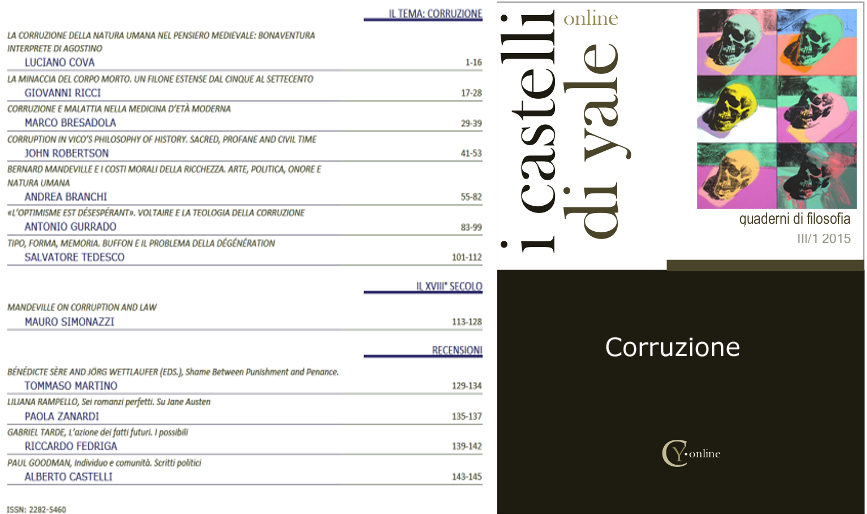BERNARD MANDEVILLE E I COSTI MORALI DELLA RICCHEZZA. ARTE, POLITICA, ONORE E NATURA UMANA
DOI:
https://doi.org/10.15160/2282-5460/1101Keywords:
Mandeville, Politica, Politeness, Onore, Self-Liking, Politic, HonourAbstract
Three hundred years since the publication of The Fable of the Bees Bernard Mandeville’s selfish system and his challenging observations on the way in which self-interested behaviour shapes social intercourse are remembered almost exclusively as a ground breaking theory on the moral implication of economic development, and its author as a forerunner of economic liberalism. Mandeville's main contribution to the Enlightenment's philosophy, as recent historiography has began to acknowledge, can be identified in the theory of a spontaneous, progressive development of human institutions – of sociability itself – through a slow process of natural selection of shared system of moral sentiments of approbation and disapprobation. From this perspective, the essay develops an analysis of the origins and functions of politics in Mandeville's evolutionary account of the development of human institutions and in connection with contemporary rituals of polite sociability, of male and female codes of honourable behaviour. Concurring with those Continental writers who stressed the components of hypocrisy and modish deceit implicit in the tradition of civility, Mandeville sees the rules of honour and politeness as the progressive outcome of a spontaneous balance of selfish passions in forms compatible with refined, polite commercial sociability. «Modern honour» is a form of spontaneous artificial order resulting from a natural passional disposition, an inescapable frame for the the practice and the intervention of a «skilful politician».


